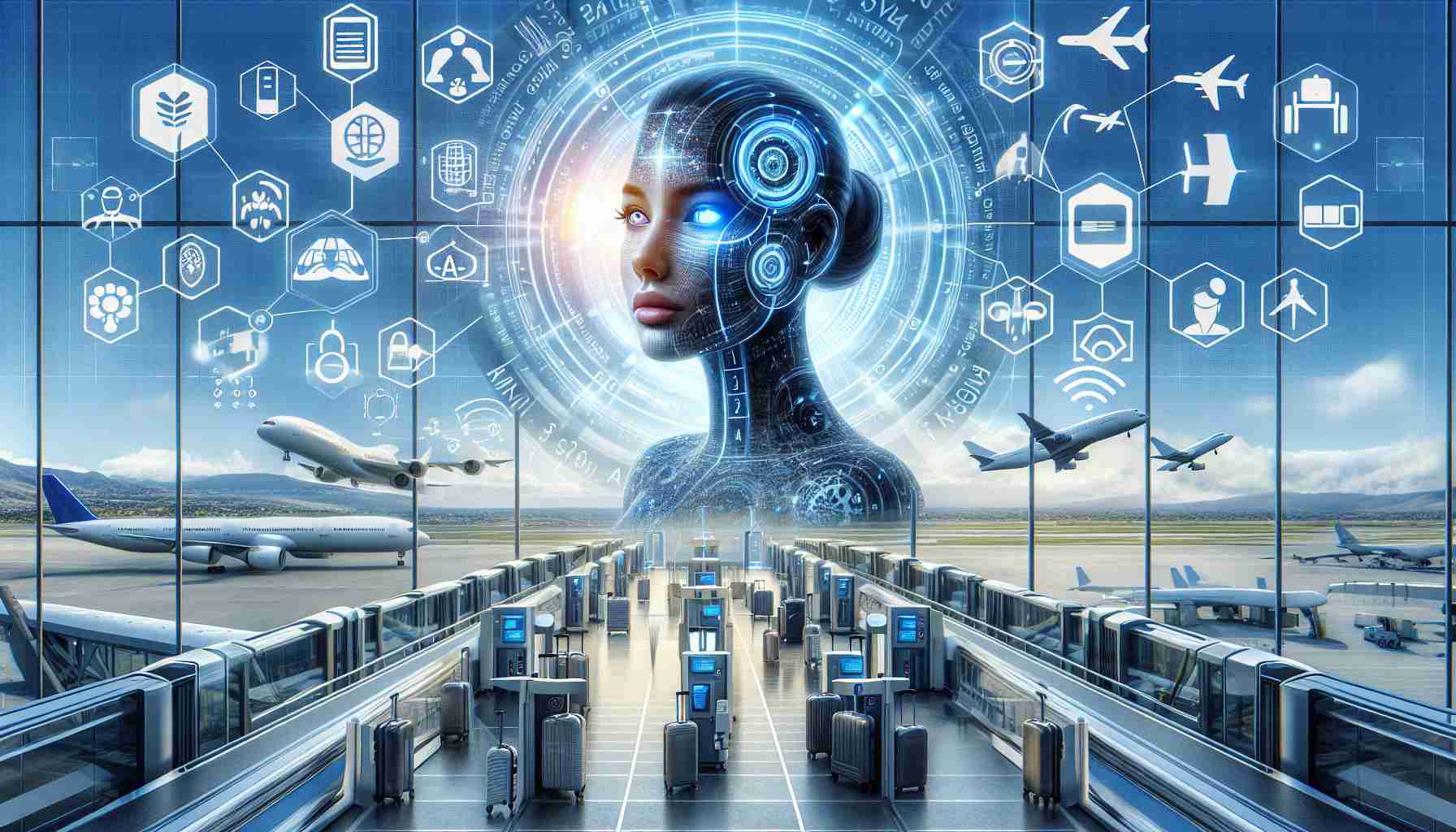Advancements in aviation technology are bringing positive changes to air travel, with airlines leveraging artificial intelligence (AI) to enhance the experience for global flyers. Despite the prevalence of delays and inconveniences, AI-driven tools are providing innovative solutions that aim to streamline travel processes.
Enhancing flight connections with AI, United Airlines introduced ConnectionSaver, a platform that orchestrates the timing of connecting flights. By analyzing real-time flight data, the software effectively reduces the rush and anxiety associated with tight layovers, assisting nearly 2,000 passengers in reaching their destinations smoothly. ConnectionSaver also delivers personalized notifications about gate details and estimated walking times, allowing travelers to navigate airports with greater assurance.
American Airlines employs Smart Gate technology, using AI to optimize gate assignments and minimize ground delays. This technology automatically assigns incoming flights to the nearest available gate that fits the timing for taxiing, improving turnaround times and reducing ground congestion. Piloted at Dallas Fort Worth International Airport and expanded to six other major hubs, Smart Gate streamlines operations and enhances customer satisfaction by ensuring more reliable gate management.
Moreover, recent regulations have strengthened passenger rights and protections, mandating airlines to offer automatic refunds for delayed or canceled flights. This transparency and accountability ensure proper compensation for inconveniences, empowering passengers to have more control over their journeys. The extension of automatic refunds to include delayed baggage and unfulfilled services underscores the commitment to consumer rights and service improvement, boosting trust and brand loyalty.
As AI continues to support innovations in air transport, these initiatives promise a new era of reliability, transparency, and convenience in flying, paving the way for a more pleasurable global travel experience.
Integrating AI with Customer Service: AI is also revolutionizing customer service in the airline industry. Chatbots and virtual assistants powered by AI are capable of handling customer inquiries, providing instant responses, and managing a wide range of customer service tasks, including booking, rescheduling flights, and providing real-time travel updates. This enhances the overall customer experience by offering immediate assistance and reducing the workload on human staff.
Biometric Systems for Enhanced Security: Airports are beginning to implement AI-powered biometric systems, such as facial recognition, to streamline the identification process. These systems help to significantly reduce the time spent in security lines, improve accuracy in identifying passengers, and enhance overall airport security. However, this technology presents privacy concerns and has sparked debates over data protection and consent.
Luggage Handling and Tracking: AI technology has been adopted in the form of smart sensors and tracking devices to manage and track baggage, reducing the instances of lost luggage. These advancements are crucial in improving passenger satisfaction and minimizing the complications associated with mishandled baggage.
Predictive Maintenance: Predictive maintenance tools leverage AI to assess the condition of aircraft components, predict potential points of failure, and schedule timely maintenance. This proactive approach helps prevent unexpected downtime, ensures aircraft safety, and can potentially lead to cost savings for airlines.
Key Questions and Answers:
– How does AI contribute to reducing flight delays?
AI assists in predicting and mitigating potential delays by optimizing flight routes, managing air traffic, and predicting maintenance issues before they cause groundings.
– What are the privacy implications of using biometric systems at airports?
There are significant privacy concerns with biometric data collection. Ensuring that data is handled securely and in compliance with privacy laws is crucial to maintaining passenger trust.
– Can AI improve safety in the aviation industry?
AI has the potential to enhance safety by monitoring aircraft systems in real-time, predicting maintenance needs, and analyzing data to improve pilot decision-making.
Key Challenges and Controversies:
– Privacy and Data Security: The use of biometric data and personal information raises concerns about privacy and the potential for data breaches.
– Reliability and Transparency: Ensuring that AI systems are reliable and decision-making processes transparent is crucial for maintaining trust in these technologies.
– Workforce Displacement: There is a concern that AI could displace jobs, particularly among ground staff and customer service agents, leading to potential resistance to adopting such technologies.
Advantages and Disadvantages:
Advantages:
– Improved efficiency in operations reduces delays and costs.
– Enhanced customer experience with personalized services.
– Sturdy safety measures through predictive maintenance and monitoring.
Disadvantages:
– Privacy concerns with AI systems handling personal data.
– Cost and complexity of integrating AI technology into existing systems.
– Potential job displacement due to automation.
For further information on air travel and AI technologies, you can visit the websites of leading aviation and technology authorities. If you are interested in specific airlines’ use of AI technologies, the following links could be useful:
– United Airlines
– American Airlines
Keep in mind that this information is provided to give you additional insights and context, and these links direct you to some of the main domains relevant to air travel and AI technology.

